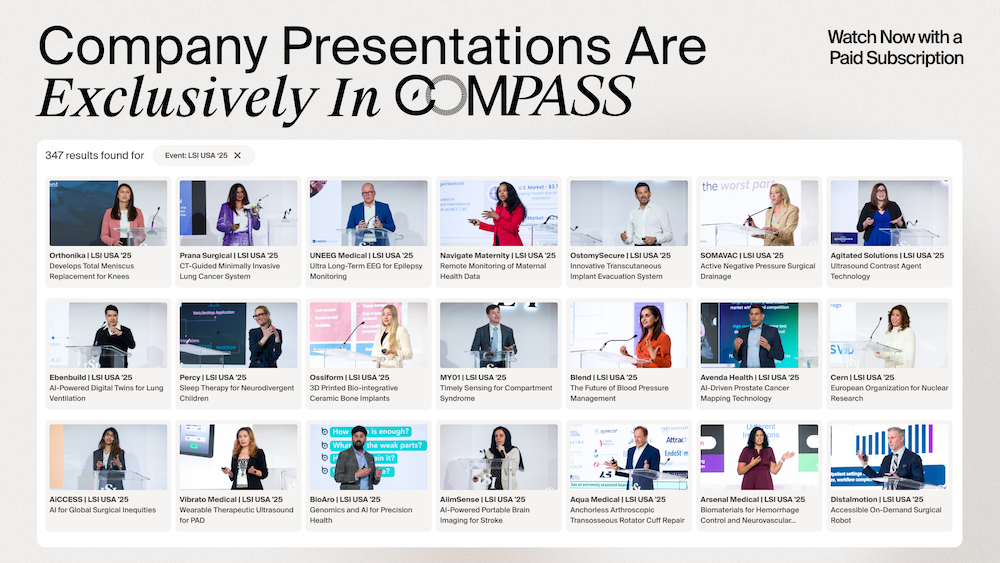- Video Library
- Meg Samek-Smith, MultiplAI Health - RNA-Based, AI-Driven Screening Technology | LSI USA '24
Meg Samek-Smith, MultiplAI Health - RNA-Based, AI-Driven Screening Technology | LSI USA '24
shaping the future of
Medtech at LSI USA ‘26
Waldorf Astoria, Monarch Beach

Meg Samek-Smith
Accomplished C-suite executive and entrepreneur with over three decades of strategic leadership. Currently steering the commercial strategy of a category changing healthcare company focused on extremely early detection of disease, leveraging RNA-sequencing and AI-enabled deep science algorithms.
Corporate Experience: Private Banking, Consumer Product Marketing, Manufacturing, Environmental Business, Healthcare, BioTech, Physical Security, Technology, Corporate Development, Communications, Laboratory Management
Expert Skills: Problem Solver, Strategy, Negotiation, Business Development, Communications, Market Research, Project Management, Detail Oriented, Leadership
Non-Profit Board Experience: Chairman of the Board at Anne Arundel Medical Center Foundation Board, Chair of Development at Bucknell University Alumni Board, President at Junior League of Annapolis , Live Board Member at Arts Maryland, Annapolis Womenade, and Key School Parents Association.
Areas of Particular Interest: Healthcare, Education, Global Affairs, Visual and Vocal Arts
Meg Samek-Smith
Accomplished C-suite executive and entrepreneur with over three decades of strategic leadership. Currently steering the commercial strategy of a category changing healthcare company focused on extremely early detection of disease, leveraging RNA-sequencing and AI-enabled deep science algorithms.
Corporate Experience: Private Banking, Consumer Product Marketing, Manufacturing, Environmental Business, Healthcare, BioTech, Physical Security, Technology, Corporate Development, Communications, Laboratory Management
Expert Skills: Problem Solver, Strategy, Negotiation, Business Development, Communications, Market Research, Project Management, Detail Oriented, Leadership
Non-Profit Board Experience: Chairman of the Board at Anne Arundel Medical Center Foundation Board, Chair of Development at Bucknell University Alumni Board, President at Junior League of Annapolis , Live Board Member at Arts Maryland, Annapolis Womenade, and Key School Parents Association.
Areas of Particular Interest: Healthcare, Education, Global Affairs, Visual and Vocal Arts

17011 Beach Blvd, Suite 500 Huntington Beach, CA 92647
714-847-3540© 2026 Life Science Intelligence, Inc., All Rights Reserved. | Privacy Policy







